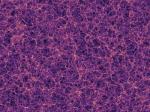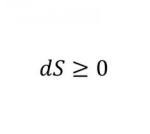 The Second Law of Thermodynamics, namely the general principle that the entropy of the universe increases, seems to apply to institutions as well as to the more restricted type of system it was first formulated for. The entropy is a measure of disorder in a system, so the second law may be reworded to say that the disorder in a system, in general, increases with time. (And conversely, this also helps to determine what is the ‘arrow of time‘ – the more disorder, almost inevitably the later in time.)
The Second Law of Thermodynamics, namely the general principle that the entropy of the universe increases, seems to apply to institutions as well as to the more restricted type of system it was first formulated for. The entropy is a measure of disorder in a system, so the second law may be reworded to say that the disorder in a system, in general, increases with time. (And conversely, this also helps to determine what is the ‘arrow of time‘ – the more disorder, almost inevitably the later in time.)
In recent weeks I have been thinking of the appropriateness of this concept outside the narrow realm of machines and engines where it was first developed. Going through some websites, I came across the following discussion, which asserts that “associated with the entropy production is the loss of ability to do work.” How valid, in general, though of course the context in which the statement was first made was quite different. And also, an “increase in overall disorder is therefore spontaneous. If the volume and energy of a system are constant, then every change to the system increases the entropy.” Change energy to UGC funding, and system to campus, and you can see that that statement still rings true!
 The impending NAAC visit provides one focus for such thoughts. Although the campus has undergone quite a transformation, it has taken the concerted efforts of a large number of people, our NAAC team, the Engineering and Estate sections, among others, to bring back a semblance of orderliness on the campus. A huge amount of physical energy has gone into actually reducing the disorder on our campus- the repainted buildings are looking good, the roads are cleaner, the undergrowth has been cleared away- all in all, there is a freshness that is evident. Thanks to them all!
The impending NAAC visit provides one focus for such thoughts. Although the campus has undergone quite a transformation, it has taken the concerted efforts of a large number of people, our NAAC team, the Engineering and Estate sections, among others, to bring back a semblance of orderliness on the campus. A huge amount of physical energy has gone into actually reducing the disorder on our campus- the repainted buildings are looking good, the roads are cleaner, the undergrowth has been cleared away- all in all, there is a freshness that is evident. Thanks to them all!
I don’t know what rating we will get since that depends not just on how we look but more on what we are, and the next few days will give us a chance to put forward our very best. But it is true that regardless of the NAAC visit outcome, it is getting increasingly difficult for the University to cope with the reduced funding and the consequent increase in entropy- be it on the matter of upkeep of our infrastructure, or the inability to meet the increasing demands of a larger and evolving community.
We have to look beyond the NAAC visit, even though it is very important that we take full cognizance of it. Occasions like this give us an opportunity to revisit if and why we are a University of Excellence, and what we really need to do to earn our spurs each day. In projecting the best in ourselves- and there is clearly a lot that is very good- we also recognize those parts that could be better, and indeed, should be better.
But in any case, whose University is it anyway? It is ours, and it is pretty much up to us as to where we take it in the years to come. Any change that has to come has to come from within the system if it is to be lasting. That is, of course, one of the ways in which we might be able to fight the Second Law, but more importantly, that is the only way in which we can become the University that we want to be.

I liked the view “We have to look beyond the NAAC visit”. In fact the approach of ‘revisiting’ needs to be an everyday act.
Dear sir,
Wish you a very happy new year! The analogy you used in your write-up is quite an apt one and I hope all non-science students have no problems in understanding your post. However, I believe, our status as a University of Excellence can and should be maintained as a process that includes all the academic activities we engage in. In other words, we should pursue and promote academic excellence in the campus in every possible way irrespective of whether we are being evaluated and graded periodically or not. I am not denying the importance of getting official recognition for what and how we are doing. Let us be like the sun- do our duty of pursuing excellence effectively and keep doing it. Thanks for making me think, dear sir!
Best regards
Santosh
Ph. D. Student, Department of English, UOH
If the NAAC is going to give us marks for the freshly painted roads and the street lights burning bright, then I would say that they are wasting public money.
I do not know whether they got some time to visit the public facilities like the canteens and the toilets. I have always held that these two facilites are usually the best index of the performance of the institution.
I hope they got sometime to read the report before they came. Unless it was given after they arrived. Anyway, it does not matter. The committee never asks for secretarial assistance.
It is nice to learn from biological systems- they eat entropy. Money does not reduce entropy- it is the efficiency that can reduce entropy. We need more discipline – that can be, we all know- easier said than done- to combat entropy production in the classrooms.